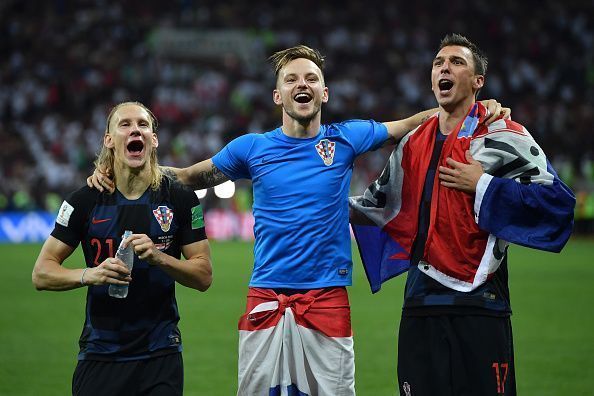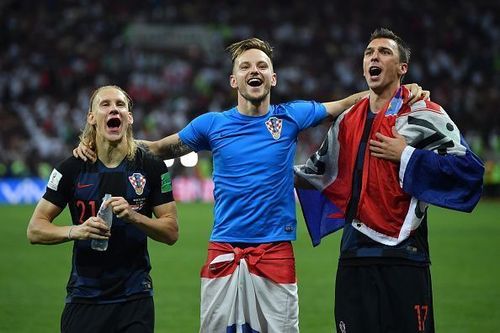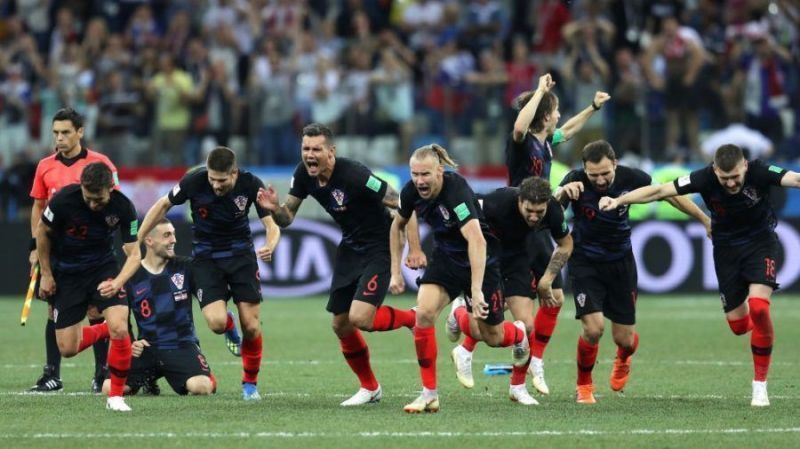
Why the story of Croatian football success at the World Cup is one of the most eccentric cases

Croatia will take on France on Sunday in the FIFA World Cup final to win the biggest prize in football. It is the final no one expected. Croatian football success is a perfect Cinderella story. In this article, I look at why it is one of the most strange and eccentric cases of sporting success in history.
Croatia is a young democracy, a country that has been carved up and reborn several times in the past 800-1000 years. Between 1991 and 2001, Balkan wars claimed the lives of over 100,000s people. Most of the Croatian players grew up in this war-torn environment and have lasted toughest times of tension and conflict which plunged the country into the bottomless pit of corruption poverty.
Croatia is the smallest country to reach a World Cup final since Uruguay in 1950. They have a population of just 4.1 million. Croatia and sports, in particular, football, have a deep bond. In Croatia, sports is not just a means of entertainment. It has gradually become a matter of national identity.
Also read: World Cup Final Prediction: France vs Croatia
Croatia's first president Franjo Tudjman described athletes as 'nation's best ambassadors'. People identify themselves through sports. They recognize themselves through sporting teams and individuals and see their own success in their victories and achievements. When in 1998, Croatia team returned home with the bronze medal at FIFA World Cup, a proud Tudjman said to the team members "You did an amazing thing, Now the world will see us differently and talk about Croatia in a more brighter tone."

Corruption's roots run deep in Croatia. Recently one of the most prominent figures in Croatian football, Zdravko Mamic received the jail sentence on serious football-related corruption charges.
There is a lack of sporting infrastructure and facilities which only worsen the situation. For example, Croatia has only five pitches that meet UEFA's international standard. Most of the talented and young players are forced to leave because of poor financial conditions.
Clubs have no choice but to sell their star players. As a matter of fact, there are just two homegrown players in Croatia's world cup squad-Dominik Livakovic of Dinamo Zagreb and Filip Bradaric of Rijeka and they have spent less than 30 minutes on the pitch combined in Russia.
There is no investment on the grassroots level, and they severely lack the necessary infrastructure required to train the local players. There is no actual investment in football at the local level and as a result of which Players have no choice but to leave the country in search of better opportunities.
By no way, one can say that the Croatia World Cup campaign is a result of planning and stability. Croatia changed coach just before the final and must win qualifier game against Ukraine. It was a must-win game as top spot was out of reach and win against Ukraine would guarantee a playoff berth. But somehow team clicked under the new coach Zlatko Dalic. They even sent one of their players Nikola Kalinic home after he refused to come off as a substitute in the opening game against Nigeria.
Even if Croatia does not win the final against France, it will be one of the most strange and eccentric cases of sporting success in history because it is an achievement in spite of the number of obstacles put in front of players.